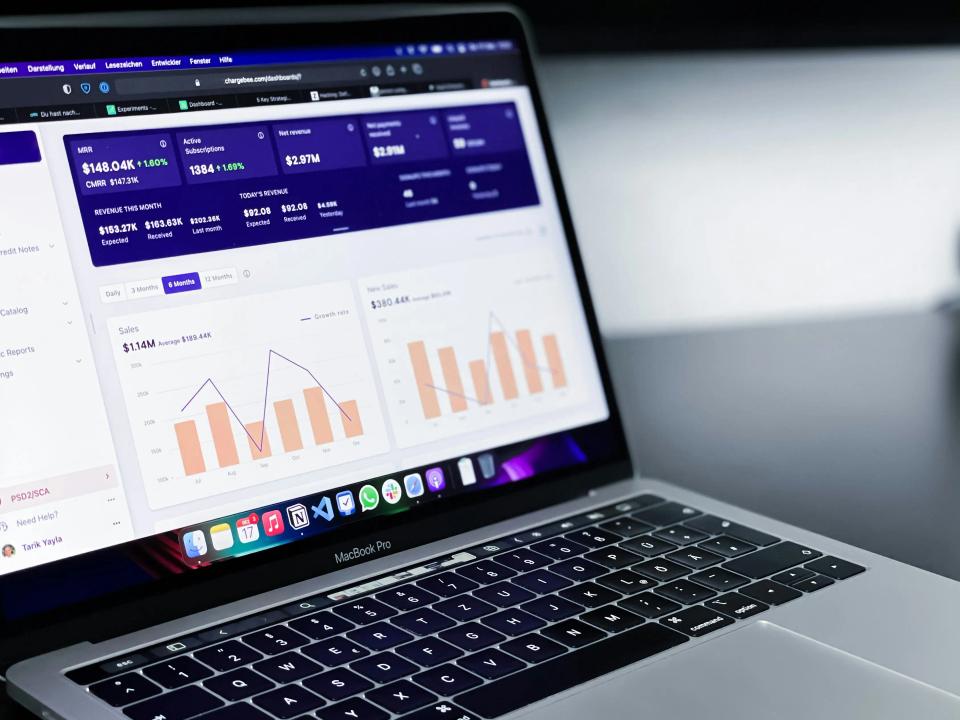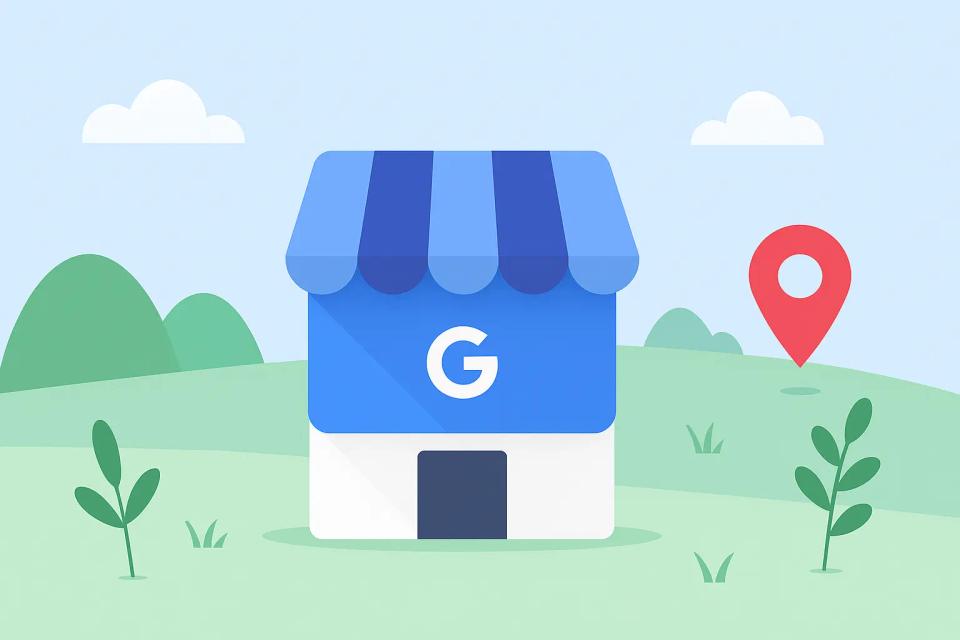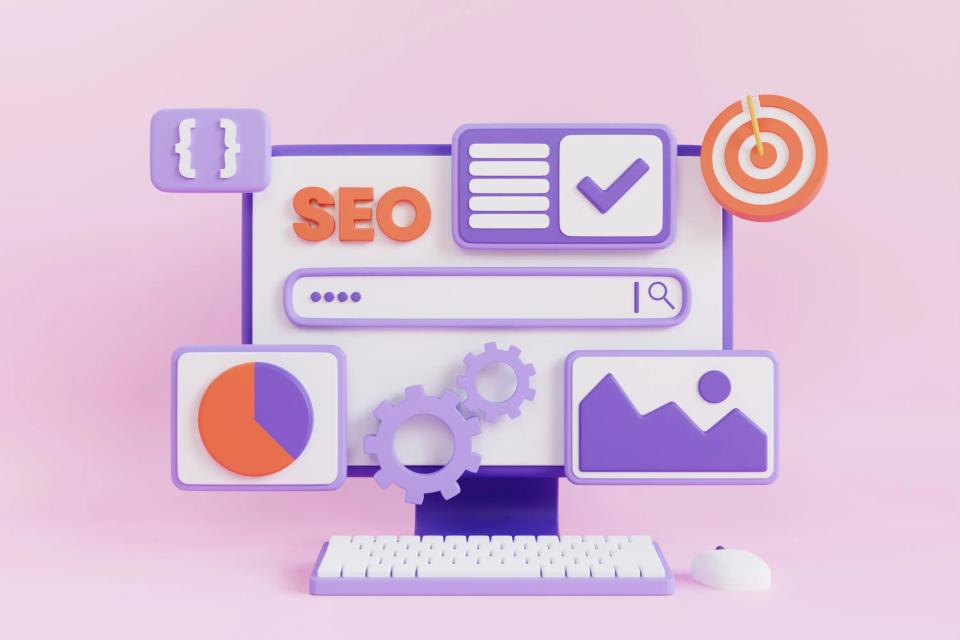Is your business playing hide-and-seek with local customers? You’re pouring your heart and soul into your work, but if nearby folks can't find you online, you're leaving a mountain of money on the table. It’s a gut-wrenching feeling, knowing potential customers are just around the corner, yet completely unaware you exist.
The truth is, local search isn't just a "nice-to-have" anymore; it's the lifeblood of small business growth. Consider this: nearly half of all Google searches are for local information. Even more compelling, a staggering 78% of location-based mobile searches result in an offline purchase. This isn't just about clicks; it's about real customers walking through your door, ready to buy.
This guide is your battle plan. We're going to cut through the jargon and arm you with actionable local SEO strategies that will catapult your business to the top of local search results. Get ready to be found, get chosen, and watch your local customer base explode.
Understanding Local SEO Fundamentals
Before we dive into the nitty-gritty, let's lay the groundwork. Understanding what local SEO truly is, and why it’s a non-negotiable for your small business, is the first step to conquering your local market. It’s simpler than you think, and far more powerful.
What is Local SEO?
So, what’s this "local SEO" buzz all about? Think of it as your digital megaphone, specifically designed to shout your business's name to people in your immediate vicinity who are actively searching for what you offer. It’s the art and science of making sure that when someone nearby types "best coffee near me" or "plumber in [Your Town]," your business pops up, bright and inviting.
It’s not about chasing vanity metrics; it’s about tangible results – more calls, more website visits from qualified local leads, and ultimately, more foot traffic. Local SEO ensures your digital storefront is prominently displayed on the busiest corner of the internet for your community. This targeted approach means you’re not wasting resources on people miles away who will never become customers.
Why it matters for small businesses
Why should you, a busy small business owner, care so deeply about local SEO? Because your survival and growth depend on it. In a world where 4 in 5 consumers use search engines to find local information, being invisible online is a death sentence.
Local SEO levels the playing field, allowing you to compete effectively against bigger chains with massive marketing budgets. It connects you with high-intent buyers – people who are looking for a solution right now, in your area. This isn't just marketing; it's about ensuring your community knows you're there, ready to serve them with the unique value only a local business can offer.
Google's local ranking factors
Ever wonder how Google decides which businesses to show in that coveted "local pack" or on Maps? It boils down to three core pillars: Relevance, Proximity, and Prominence. Relevance is how well your business profile matches what someone is searching for.
Proximity refers to how close your business is to the searcher or the location specified in their search. Prominence is about how well-known your business is, considering factors like online reviews, citations (mentions of your business online), and the overall authority of your website. Google’s goal is simple: to provide the most accurate and helpful local results, and understanding these factors helps you play their game and win.
The difference between traditional and local SEO
It's crucial to understand that local SEO isn't just a scaled-down version of traditional SEO. Traditional SEO aims for global or national visibility, casting a wide net. Think of a fishing trawler in the open ocean.
Local SEO, however, is like spear fishing in your local lake – precise, targeted, and focused on a specific geographic area. While both share foundational principles like keyword research and content quality, local SEO places a much heavier emphasis on location-specific signals, your Google Business Profile, local citations, and community engagement. It’s about dominating your neighborhood, not the entire world.
Essential Local SEO Strategies
Now that you grasp the fundamentals, let's roll up our sleeves. These essential strategies are the building blocks of local SEO success. Implement them diligently, and you'll see a real difference in how easily local customers can find and choose you.
Google Business Profile Optimization
Your Google Business Profile (GBP) is arguably the most powerful free tool in your local SEO arsenal. It's your prime real estate on Google Search and Maps. Neglecting it is like having a shop on the main street but keeping the shutters down.
Complete profile setup
First things first: claim and meticulously complete every section of your Google Business Profile. Don't skimp on details. Your business name, address, phone number (NAP), website, hours of operation, and services offered must be accurate and consistent everywhere online. This isn't just data entry; it's laying the foundation for trust with both Google and potential customers. A fully optimized profile is your first handshake – make it a firm one.
Regular updates and posts
An active profile signals to Google that your business is thriving and engaged. Use Google Posts regularly to share updates, special offers, new products, or upcoming events. Think of it as a mini-blog or social feed directly within your Google listing. According to Google, businesses that add photos to their Business Profiles receive 42% more requests for directions on Google Maps and 35% more clicks through to their websites. Keep it fresh, keep it relevant, and keep customers informed.
Photos and visual content
Words tell, but pictures sell. High-quality photos and videos of your business, products, services, team, and happy customers can dramatically increase engagement. Show off your ambiance, your craftsmanship, or the results you deliver. Visuals build trust and allow potential customers to get a feel for your business before they even step through the door or click to your website. Make your GBP visually irresistible.
Business categories and attributes
Choosing the right primary category for your business is critical – it tells Google exactly what you do. Be as specific as possible. Then, add relevant secondary categories to cover all your offerings. Don't forget attributes! These allow you to highlight specific features like "wheelchair accessible," "free Wi-Fi," "outdoor seating," or "women-led," helping you connect with customers seeking those specific amenities.
Local Keyword Research and Implementation
You need to speak your customers' language. Local keyword research is about uncovering the exact phrases people in your area use when searching for businesses like yours. Get this right, and you unlock a flood of targeted traffic.
Finding location-based keywords
Think like a local. What terms would you type into Google if you needed your services in your town? Combine your service or product with location modifiers: "emergency plumber [City Name]," "best Italian restaurant [Neighborhood]," or "[service] near me." Tools like Google Keyword Planner can help, but common sense and customer empathy are your best guides here. These are the golden keys to your local kingdom.
Long-tail local keywords
Don't just target broad terms. Dig deeper for long-tail local keywords – those longer, more specific phrases that indicate high purchase intent. For example, instead of just "bakery [City]," target "custom birthday cakes downtown [City]" or "vegan croissants [Neighborhood] open Sunday." While they have lower search volume, long-tail keywords often have a click-through rate 3% to 5% higher than generic searches because they attract highly qualified, ready-to-buy customers.
Implementing keywords naturally
Once you've identified your golden local keywords, weave them naturally into your website content, Google Business Profile description, service pages, and blog posts. Avoid "keyword stuffing" – jamming keywords unnaturally into your text. Write for humans first, search engines second. Authenticity and readability are paramount for both user experience and SEO.
Local content optimization
Your website content needs to scream "local." Beyond just listing your address, infuse your pages with local flavor. Mention nearby landmarks, discuss your involvement in community events, or create neighborhood-specific service pages. This not only resonates with local visitors but also sends strong relevance signals to Google, reinforcing that you are an integral part of the local fabric.
Citation Building and Management
Citations are online mentions of your business's Name, Address, and Phone number (NAP). Consistent and accurate citations across the web build trust with Google and make it easier for customers to find you. Think of them as digital breadcrumbs leading back to your business.
Importance of NAP consistency
Your NAP information is your business's digital fingerprint. It must be identical everywhere it appears online – your website, GBP, social media, and online directories. Even minor discrepancies like "Street" vs. "St." can confuse search engines and erode trust. In fact, 80% of consumers lose trust in local businesses if they see incorrect or inconsistent contact details. Consistency is king.
Top business directories
Get your business listed on major, authoritative online directories. Think Yelp, Yellow Pages, Foursquare, Bing Places, and Apple Maps. These are foundational citations that carry significant weight. Ensure your profile on each is complete, accurate, and mirrors the information on your GBP. Each quality listing is another vote of confidence for your local presence.
Industry-specific directories
Beyond the general directories, seek out niche directories relevant to your industry and location. Are you a contractor? Look for builder associations. A lawyer? Legal directories. A restaurant? Food-specific review sites. These specialized citations signal expertise and relevance within your field, often attracting highly qualified leads.
Citation audit and cleanup
Over time, incorrect or outdated citations can accumulate, harming your local SEO. Regularly audit your online presence to find and correct any NAP inconsistencies or duplicate listings. Tools like Moz Local or BrightLocal can help automate this process. This digital housekeeping is tedious but vital for maintaining a clean, trustworthy online footprint.
Website Optimization for Local Search
Your website is your digital mothership. It needs to be finely tuned to attract and convert local customers. This means optimizing on-page elements and creating content that screams "local."
On-Page SEO Elements
These are the tweaks you make directly on your website pages to improve their visibility and relevance for local search. Small changes here can yield big results. It’s about making it crystal clear to both users and search engines what you do and where you do it.
Local landing pages
If you serve multiple distinct areas or offer very different services, consider creating dedicated local landing pages. For instance, a plumber serving three towns could have a unique page for each: yourplumber.com/town-a-plumbing, yourplumber.com/town-b-emergency-repair. Each page should feature unique content tailored to that specific location and service, including local keywords and neighborhood references. This hyper-focus boosts relevance and conversion rates.
Meta descriptions and titles
Your page titles and meta descriptions are your sales pitch in the search results. They need to be compelling enough to earn the click. Craft unique, keyword-rich titles (under 60 characters) and enticing meta descriptions (under 160 characters) for each important page, incorporating your primary local keyword and a clear benefit. Remember, optimized meta descriptions can significantly boost click-through rates, bringing more local searchers to your site.
Header tags
Use header tags (H1, H2, H3, etc.) to structure your content logically and highlight your most important keywords. Your main page title should typically be an H1 tag containing your primary local keyword. Use H2s and H3s for subheadings to break up text, improve readability, and incorporate secondary local keywords. Think of them as signposts guiding both readers and search engine crawlers through your content.
URL structure
Keep your website URLs clean, concise, and descriptive. Where appropriate and natural, include relevant local keywords. For example, yourbakery.com/cakes/springfield-wedding-cakes is much better than yourbakery.com/page_id=123. User-friendly URLs are also SEO-friendly, helping search engines understand the page's content and relevance to local queries.
Local Content Creation
Content is king, and for local SEO, local content reigns supreme. Create valuable, engaging content that speaks directly to your local audience and positions you as a community authority. This is how you build connections and attract organic local traffic.
Location-specific pages
Go beyond just listing your address. Develop rich, location-specific pages that detail your services within a particular area. Talk about your history in the community, mention local landmarks, or highlight customer success stories from that neighborhood. This deepens your local identity and provides Google with strong signals of your geographic relevance.
Local blog content
Start a blog and populate it with articles that answer the questions and address the interests of your local community. Think "Best Dog Parks in [Your City]," "A Homeowner's Guide to [Local] Winters," or "Interview with [Local Community Leader]." This type of content attracts local searchers, establishes your expertise, and can be a goldmine for local links. Plus, companies that blog tend to get significantly more links to their websites, which boosts overall SEO.
Community involvement coverage
Are you sponsoring a local little league team, participating in a town festival, or volunteering for a neighborhood cleanup? Showcase it! Create blog posts, photo galleries, or social media updates about your community involvement. This not only generates positive PR but also creates authentic local content that resonates with your audience and signals to Google that you're an active, engaged member of the local ecosystem.
Event-based content
If you host workshops, sales, open houses, or participate in local markets, create dedicated content around these events. Develop event pages on your website, write blog posts promoting them, and share details on your GBP and social media. This drives awareness, encourages attendance (both online and offline), and can generate timely local buzz and search interest.
Review Management and Customer Feedback
Online reviews are the digital word-of-mouth, and they wield immense power in local SEO. What your customers say about you online can make or break your ability to attract new business. Managing your reputation actively is not just good customer service; it's a critical ranking factor.
Importance of reviews for local SEO
Reviews are a massive trust signal for both potential customers and Google. A steady stream of positive reviews can significantly boost your local pack rankings and convince searchers to choose you over competitors. In fact, a striking 93% of consumers say that online reviews influenced their purchase decisions. Google sees reviews as a reflection of your business's quality and prominence in the local market.
Strategies for getting more reviews
Don't be shy about asking satisfied customers for a review. Make it incredibly easy for them by providing direct links to your review profiles on Google, Yelp, or industry-specific sites. You can ask in person after a successful transaction, via a follow-up email, or even with a subtle QR code on your receipts or business cards. The key is to ask consistently and make the process frictionless.
Responding to reviews (positive and negative)
Engage with your reviewers! Thank customers for positive feedback; it shows appreciation and encourages more reviews. Crucially, respond professionally and constructively to negative reviews. Addressing concerns publicly demonstrates that you value customer feedback and are committed to resolving issues. This can often turn a dissatisfied customer into a loyal one, and it shows prospective customers how you handle challenges. Interestingly, businesses that actively respond to their reviews can see a notable increase in revenue.
Leveraging reviews for marketing
Your glowing reviews are marketing gold – don't let them just sit on review sites. Showcase your best testimonials on your website's homepage, service pages, and even in your email signatures. Share positive reviews on your social media channels. This social proof builds immense credibility and can be far more persuasive than any traditional advertising. Let your happy customers become your most effective salespeople.
Mobile Optimization
In today's on-the-go world, mobile optimization isn't a luxury; it's a fundamental requirement for local SEO success. More and more local searches happen on smartphones, often when users are out and about, looking for immediate solutions. If your website isn't mobile-friendly, you're invisible to a huge chunk of your potential local customers.
Mobile-friendly design
Your website must provide a seamless experience on all devices, especially smartphones. This means responsive design, where your site automatically adjusts its layout to fit any screen size. Text should be easily readable without zooming, buttons large enough to tap, and navigation intuitive. With over 60% of Google searches now performed on a mobile device, a clunky mobile site is a direct path to lost business.
Local mobile search trends
Mobile users searching locally often have high intent and immediate needs. They're looking for your address, phone number, opening hours, or directions – right now. "Near me" searches have exploded in popularity. Your online presence needs to be optimized to quickly provide this information to users on the move, or they'll simply tap over to a competitor whose site is easier to use.
Speed optimization
Mobile users are notoriously impatient. Every second counts. A slow-loading website will send them bouncing back to the search results faster than you can say "lost sale." Optimize images, minify code, leverage browser caching, and ensure your server response time is snappy. Even a 1-second delay in page load time can result in a significant reduction in conversions. Speed is not just a user experience factor; it's a ranking factor too.
User experience considerations
Think about the specific needs of a mobile user interacting with your local business site. Make your phone number click-to-call. Ensure your address links directly to map applications. Simplify forms and navigation. The goal is to make it absolutely effortless for a mobile user to find what they need, contact you, or visit your location. A frustrating mobile experience is a guaranteed way to lose potential customers.
Local Link Building Strategies
Links from other reputable local websites to yours are like votes of confidence in the eyes of Google. They signal authority and relevance within your community. Building a strong local link profile is a powerful way to climb the local search rankings.
Community partnerships
Forge relationships with complementary, non-competing local businesses. For example, a wedding photographer could partner with a local florist or venue. Cross-promote each other on your websites with a link, or collaborate on content. A link from a respected local entity can significantly boost your local authority and drive valuable referral traffic.
Local sponsorships
Consider sponsoring local events, sports teams, charities, or community initiatives. Often, these sponsorships come with the perk of a link back to your website from the organization's site. This is a fantastic way to gain a relevant local backlink while also demonstrating your commitment to the community. It’s a win-win for your SEO and your local reputation.
Chamber of Commerce memberships
Joining your local Chamber of Commerce or other business associations often provides a listing in their online directory, usually including a link to your website. These are typically trusted, authoritative local sources, and Google takes note of such links. Plus, the networking opportunities can lead to further partnerships and visibility.
Local news and media coverage
Getting featured by local news outlets, bloggers, or community radio can be a goldmine for high-quality local links. Issue press releases for newsworthy events, offer your expertise for interviews, or build relationships with local journalists. A link from a well-regarded local media site can provide a substantial boost to your local prominence and SEO. As experts at Moz often highlight, local news sites can be powerful link sources.
Measuring Local SEO Success
You can't improve what you don't measure. Tracking your local SEO performance is crucial to understanding what's working, what's not, and where to focus your efforts for maximum impact. Data-driven decisions are the key to sustained local search dominance.
Key metrics to track
Focus on metrics that truly reflect your local visibility and customer engagement. Monitor your rankings for key local keywords, especially in the Google local pack and Maps. Track traffic to your website from organic local searches. Dive into your Google Business Profile Insights to see how many people are viewing your profile, requesting directions, clicking to your website, or calling your business directly from your listing. Don't forget to measure conversion rates from this local traffic.
Tools for monitoring local rankings
Several tools can help you keep tabs on your local SEO performance. Google Search Console provides invaluable data on how your site performs in Google Search, including queries that bring users to your site and any indexing issues. Google Analytics tracks website traffic and user behavior. For more specific local rank tracking and citation monitoring, consider tools like BrightLocal, SEMrush's local SEO features, or Moz Local.
Analytics and reporting
Don't just collect data; analyze it. Regularly review your reports to identify trends, successes, and areas for improvement. Are certain keywords driving more calls? Is your GBP traffic increasing after recent optimizations? Understanding the story behind your numbers allows you to refine your strategy and allocate resources effectively.
Adjusting strategies based on data
Local SEO is an ongoing process, not a one-time task. The digital landscape and search algorithms are constantly evolving. Use the insights gleaned from your analytics to make informed adjustments to your strategies. If a particular type of content is performing well, create more of it. If certain keywords aren't delivering, re-evaluate your targeting. Continuous iteration and improvement based on real-world data are essential for long-term local SEO success.
Common Local SEO Mistakes to Avoid
Even with the best intentions, it's easy to make missteps that can sabotage your local SEO efforts. Being aware of these common pitfalls can help you steer clear and keep your strategy on track for success. Don't let these simple errors undermine your hard work.
Inconsistent NAP information
This is the cardinal sin of local SEO. Your Business Name, Address, and Phone number (NAP) must be exactly the same across every online platform – your website, Google Business Profile, social media, and all directories. Even a slight variation like "St." vs. "Street" or an old phone number can confuse Google and customers, severely damaging your credibility and rankings. Audit and correct relentlessly.
Neglecting mobile optimization
In an era where most local searches happen on smartphones, having a website that isn't mobile-friendly is like slamming the door in the face of potential customers. A poor mobile experience leads to high bounce rates and lost opportunities. In fact, 57% of users say they won’t recommend a business with a poorly designed mobile site. Ensure your site is responsive, fast, and easy to navigate on all devices.
Ignoring customer reviews
Your online reviews are a direct line of communication with your customers and a powerful signal to prospects. Failing to monitor and respond to reviews – both positive and negative – makes you look disengaged and uncaring. Negative reviews left unaddressed can severely tarnish your reputation, while ignoring positive ones misses an opportunity to build loyalty. Make review management an active part of your routine.
Poor content localization
Generic, one-size-fits-all content won't cut it for local SEO. If your website and online materials don't speak directly to your local audience and reflect your connection to the community, you'll fail to resonate. Ensure your content is infused with local flavor, mentions local landmarks or events where appropriate, and clearly targets the specific geographic areas you serve. Lack of localization makes you appear distant and irrelevant to nearby searchers.
Advanced Local SEO Tips
Once you've mastered the fundamentals, these advanced tactics can give you an extra edge, helping you outmaneuver competitors and further solidify your local search dominance. These strategies require a bit more technical know-how but can yield significant returns.
Schema markup implementation
Implement LocalBusiness schema markup on your website. This structured data helps search engines like Google better understand key information about your business, such as your NAP, opening hours, services, and reviews. Correctly implemented schema can lead to rich snippets in search results (like star ratings or event details appearing directly under your listing), making your business stand out and potentially improving click-through rates.
Local competitive analysis
Don't operate in a vacuum. Regularly analyze what your top local competitors are doing. Which keywords are they ranking for? What does their Google Business Profile look like? Where are they getting their local citations and backlinks? Tools can help with this, but even manual searching can reveal valuable insights into their strategies, highlighting opportunities for you to differentiate or improve.
Voice search optimization
With the rise of smart speakers and voice assistants, optimizing for voice search is increasingly important for local businesses. People using voice search often use longer, more conversational phrases and questions, like "Hey Google, find a pet-friendly cafe near me that's open now." Focus on long-tail keywords, answer common local questions directly in your content, and ensure your GBP information is accurate for these types of queries. Voice search is increasingly used for local queries, making natural language optimization crucial.
Local social media integration
Your social media presence can indirectly support your local SEO efforts. Share your local content (blog posts, event announcements, community news) on your social channels. Engage with local followers and participate in local conversations. Running geo-targeted ads on platforms like Facebook can also drive local awareness and traffic. While social signals aren't a direct ranking factor, an active and locally-focused social presence contributes to your overall online prominence and brand visibility.
Conclusion
You've just navigated a comprehensive roadmap to local SEO mastery. From optimizing your Google Business Profile to crafting compelling local content and managing your online reputation, these strategies are your keys to unlocking unprecedented local growth. The power to attract more local customers, dominate your neighborhood search results, and build a thriving community-focused business is now in your hands.
The journey to the top of local search begins with a single step. Don't let overwhelm paralyze you. Pick one strategy from this guide – perhaps perfecting your Google Business Profile or starting your local keyword research – and implement it today. The future of local SEO will continue to evolve, but its core principle remains timeless: connecting businesses with the customers right around the corner. Stay informed, stay agile, and most importantly, stay committed to serving your local community.
Additional Resources
To further empower your local SEO journey, here are some valuable resources. These tools, readings, and support options can help you deepen your understanding and accelerate your results. Knowledge is power, especially in the dynamic world of digital marketing.
Tools and platforms
- Google Business Profile: Your non-negotiable starting point for local visibility.
- Google Analytics: Essential for tracking website traffic and user behavior.
- Google Search Console: Provides insights into your site's performance in Google search.
- BrightLocal / Moz Local: Excellent paid tools for citation management, rank tracking, and local SEO audits.
Further reading
For those eager to dive even deeper, consider exploring comprehensive guides from industry leaders. The Local SEO Learning Center by Moz offers a wealth of information, from beginner basics to advanced tactics, helping you stay ahead of the curve. Continuously educating yourself is key to adapting to the ever-changing SEO landscape.













